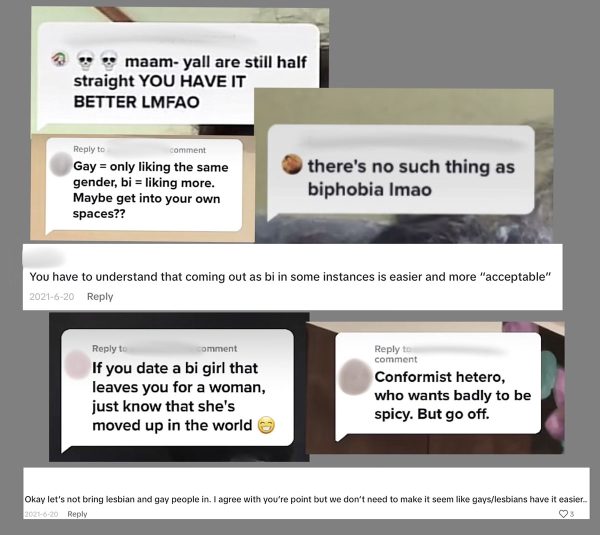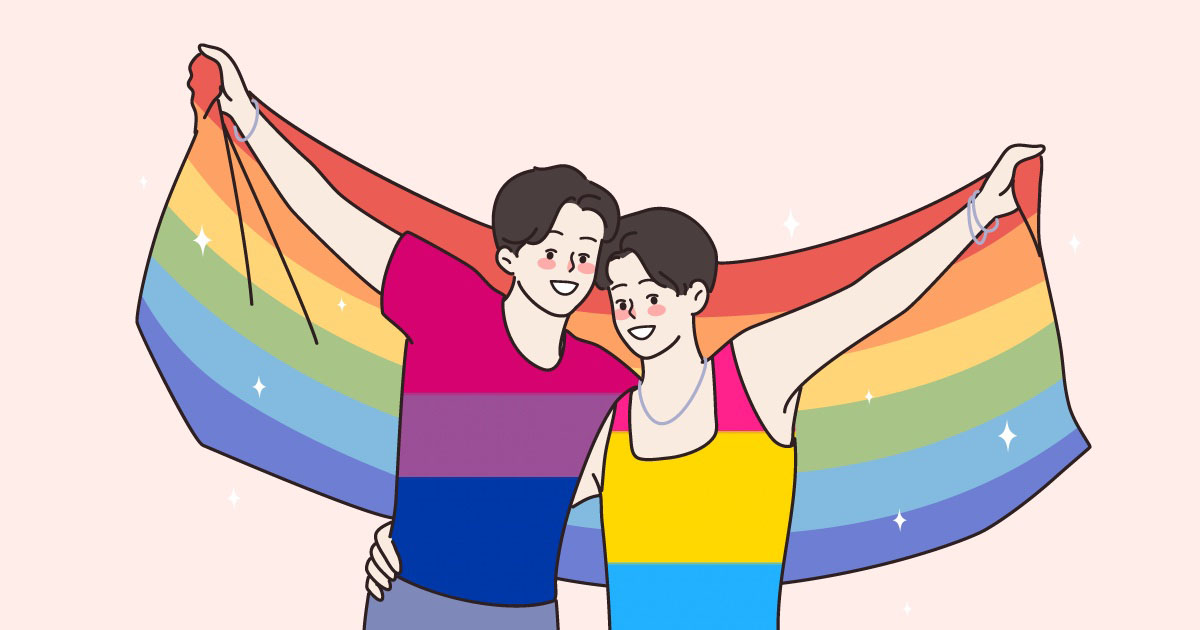Biphobia is defined as the “dislike of or prejudice against bisexual people” according to Oxford Languages. It is defined more modernly as the discrimination of multiple-attraction spectrum (MSPEC) individuals, people who feel attraction to more than one gender.
The LGBTQ+ community is unfortunately notorious for the exclusion of its MSPEC peers, carrying the assumption and claiming that they have it easier because they’re “half straight.” Even being a pansexual person myself, I held this assumption for a majority of my life.
It wasn’t until I took the time to look into the reality of it that I found out that this statement is not only morally incorrect, but statistically incorrect as well.
According to a study conducted by Stonewall, 18% of bisexual men reported experiencing oppression from other members of the queer community in comparison to 4% of gay men; 27% of bisexual women reported discrimination in the community versus just 9% of lesbian women.
In the same study, it was found that 41% of gay staff would feel comfortable reporting anti-queer harassment in their workplace whereas only 28% of bisexual people would.
Bisexuals are far less likely to be out to medical providers, employers, family and peers due to casual biphobia and biphobic assumptions.
It’s no surprise then that bisexuals also display higher rates of anxiety, depression, eating disorders and mood disorders as well as higher rates of self-harm, according to the National Sexual Violence Resource Center.
It’s also been found in various studies that bisexuals are more likely to experience sexual and intimate partner violence, according to the NSVRC.
These are far from the only statistics proving that bisexuals have it far worse than their homosexual peers, yet this is a reality aggressively oppressed by the queer community. Countless gay people simply refuse to accept the reality of biphobia and the struggle of MSPEC people.

Other queer people will diminish the reality of biphobia by crying that suffering shouldn’t be compared and that acknowledging biphobia in the gay community generalizes and villainizes them.
However, I’ve witnessed that the standard of “not comparing suffering” is not applied by almost anyone when a gay or lesbian person incorrectly asserts that bisexuals have it easier or that homosexuals have it harder.
The protest that addressing biphobia in the queer community villainizes and generalizes them is not at all a valid reason to not acknowledge discrimination against bisexuals in lesbian and gay communities — it is equal to shouting “not all men” in feminist discussions about sexual assault.
Being in a minority group does not give you a free pass when you oppress another member of a minority group.
The reality of biphobia in the queer community and the struggles that MSPEC individuals endure in their own community must be acknowledged if there is any hope to end the oppressions that the queer community works so hard to be rid of.
The liberation of all queer people is impossible without the liberation of MSPEC individuals, even if that liberation must start from the inside out.
Tuong can be reached tuonglk4582@uwec.edu.








Evan Sundard • Aug 18, 2024 at 6:46 pm
Queer people are not in straight relationships. that is the difference.
Kari • Aug 18, 2024 at 6:44 pm
Interesting. I’m just wondering why they’re all with men? The bi men and the bi women. As a lesbian, it was important to me to decenter men so I don’t date bi women.